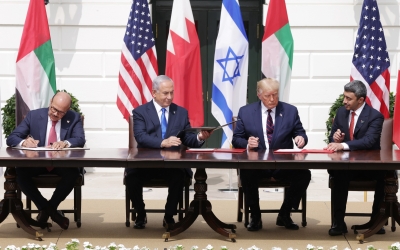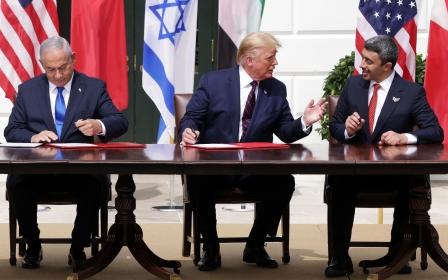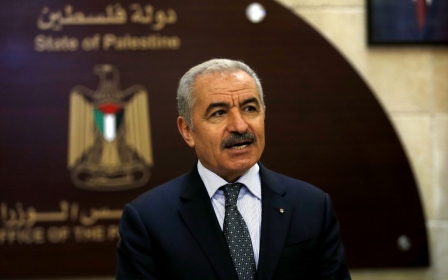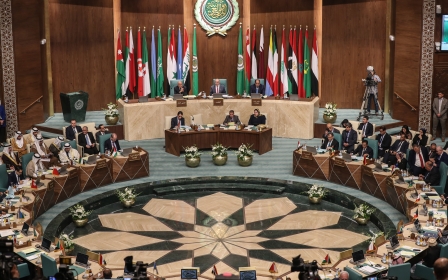Hamas warns Israel of escalation following air strikes on Gaza
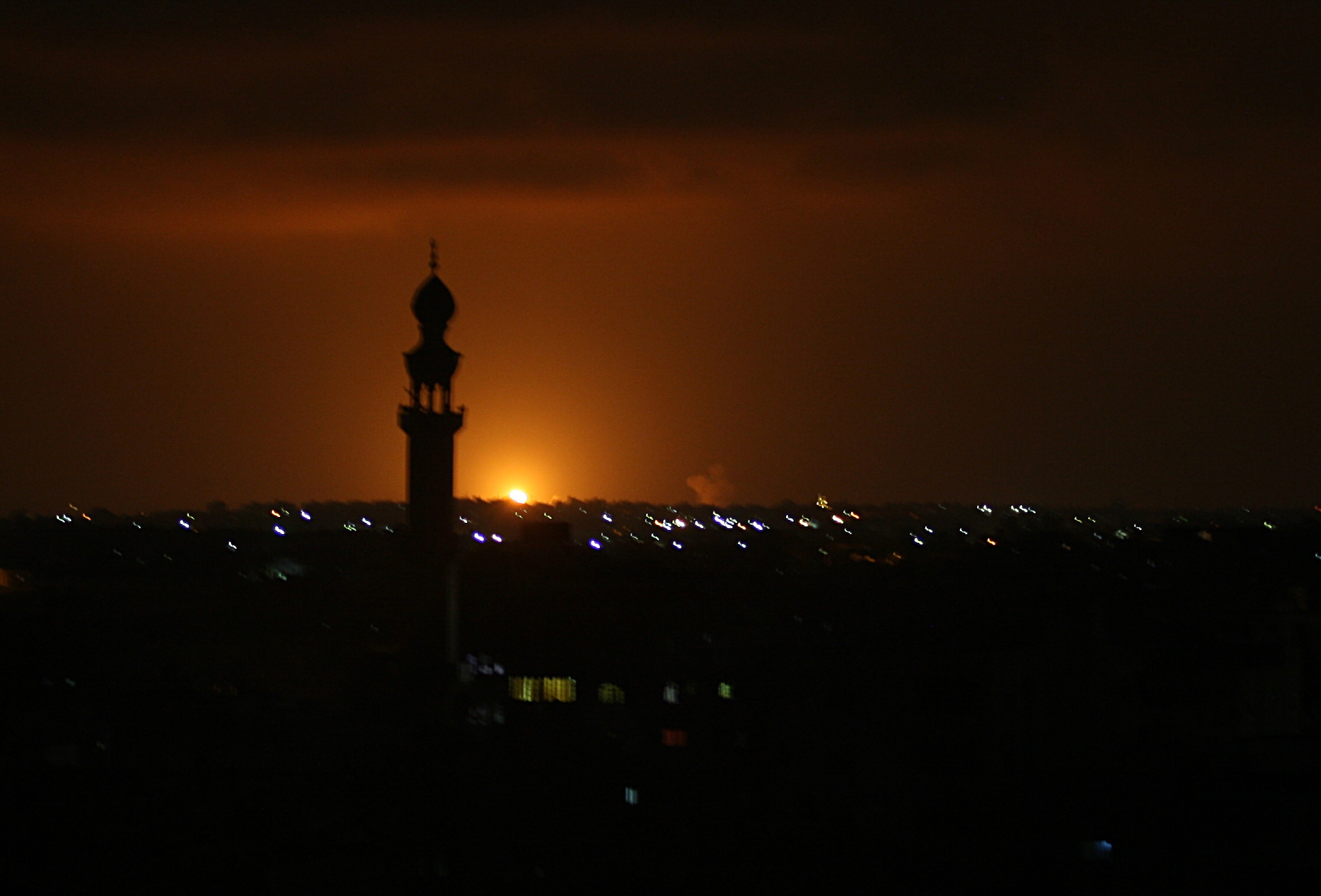
Hamas warned Israel it would face a military escalation on Wednesday after its warplanes bombed the Gaza Strip following rocket fire from the Palestinian territory.
"The occupation (Israel) will pay the price for any aggression against our people or resistance sites and the response will be direct," said the group which governs the besieged enclave.
"We will increase and expand our response to the extent that the occupation persists in its aggression," the group added in a statement.
Israel bombed Gaza on Wednesday morning after rocket fire from the territory coinciding with Israeli Prime Minister Benjamin Netanyahu's signing of normalisation deals with the UAE and Bahrain in Washington.
The Israeli military said it launched about 10 air strikes early on Wednesday and that 15 rockets had been fired from the territory at Israeli communities near the border, where sirens sounded before dawn.
The military said eight of the rockets launched on Wednesday were intercepted by its Iron Dome anti-missile system, Reuters reported.
In a statement, the army said targets in Gaza included a weapons and explosives manufacturing factory and a compound used by Hamas for training and rocket experiments.
Without naming specific factions, the Islamic Jihad group in Gaza said that in response to the air strikes, the "resistance" fired rocket salvoes at Israel.
'They will not succeed'
At least two rockets were fired from the Gaza Strip the previous evening, one of which was intercepted by Israel's Iron Dome anti-missile system.
The other crashed into the southern coastal city of Ashdod, lightly wounding at least two people, emergency services said.
In response to the Tuesday attack, Netanyahu said: "They want to turn back the peace. In that, they will not succeed.
"We will strike at all those who raise a hand to harm us, and we will reach out to all those who extend the hand of peace to us."
Palestinians, who seek an independent state in the occupied West Bank and Gaza, view the US-brokered deals as a betrayal of their cause.
Clutching Palestinian flags and wearing blue face masks for protection against coronavirus, demonstrators rallied in the West Bank cities of Nablus and Hebron and in Gaza.
Hundreds also took part in a demonstration in Ramallah, home of the Palestinian Authority (PA).
PA President Mahmoud Abbas warned that the deals would "not achieve peace in the region" until the US and Israel acknowledged his people's right to a state, AFP reported.
"Peace, security and stability will not be achieved in the region until the Israeli occupation ends," he said.
'Dangerous consequences'
The normalisation by the UAE and Bahrain breaks with decades of consensus within the Arab world that an Israeli-Palestinian peace deal is a prerequisite for establishing ties with Israel.
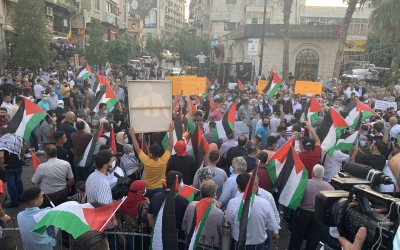
Abbas warned that "attempts to bypass the Palestinian people and its leadership, represented by the Palestine Liberation Organisation, will have dangerous consequences".
In Gaza, protesters trampled on and set fire to placards bearing images of the leaders of Israel, the UAE and Bahrain.
The latest exchanges came after a month of incendiary balloon attacks against Israel, which responded with night time air strikes against Hamas.
The two sides last month reached a Qatari-mediated deal to end hostilities and revive a fragile 18-month truce.
Hamas has joined the PA in condemning the UAE and Bahraini accords as a "betrayal" of their cause.
Middle East Eye propose une couverture et une analyse indépendantes et incomparables du Moyen-Orient, de l’Afrique du Nord et d’autres régions du monde. Pour en savoir plus sur la reprise de ce contenu et les frais qui s’appliquent, veuillez remplir ce formulaire [en anglais]. Pour en savoir plus sur MEE, cliquez ici [en anglais].


